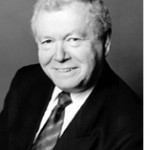By Rabbi Dow Marmur

JERUSALEM — General Aviv Kochavi, currently in charge of the Northern Command of the Israel Defense Forces (IDF), came to see my wife Fredzia the other day. He was one of some two dozen members of the General Staff, led by the Chief of Staff, who visited Beit Mozes, the old people’s home (“seniors’ residence”) in Jerusalem to which we’ve moved recently and where about two-thirds of its some 150 residents are said to be Holocaust survivors.
The visit was part of an IDF project called, “A Flower for a Survivor.” After attending a ceremony at Yad Vashem, the Holocaust Memorial in Jerusalem, members of the General Staff spent the rest of the day hearing eyewitness accounts by survivors, aware that soon there’ll be nobody to give such testimony and that the evidence will be in the hands of historians and custodians of memorial sites.
The message underlying the enterprise was stressed by Prime Minister Netanyahu a day or so later and which most Jews in Israel and elsewhere heartily endorse: as long as Israel is there and its army to defend it, what happened in the Holocaust won’t recur. Israel is the most potent evidence of the veracity of the pledge, “Never again!”
It’s difficult not to view the commitment to the memory of the Holocaust by the Israeli establishment without remembering the disdain that many members of the yishuv, the small Jewish population that lived in Palestine during and immediately after the Holocaust, felt and expressed when encountering survivors: “Why did they not defend themselves? Why did they go to the gas ovens like sheep to the slaughter?” The current trend goes out of its way to honor survivors while celebrating Jewish defense.
Israel has added to “Holocaust Remembrance Day” the words, “and Heroism.” Speakers today stress not only the unbearable suffering but also the resistance and the heroism of many. That’s why the date on which we mark the occasion is the anniversary of the Uprising in the Warsaw Ghetto. Israelis want to make us remember that, though the Jews were martyrs, there were also heroes among them.
In view of the ever more extreme nationalism the ugly face of which has become a feature of public discourse in Israel, there’s the legitimate fear that the memory of the destruction of European Jewry is being hijacked by crass politics. But not much of that is being said in public, because despite the seven decades and more that have passed since the end of World War II, Jews still live in the shadow of the trauma, heightened by the perennial threat to Israel’s existence.
But there’s also a different way to commemorate. On the eve of Holocaust Memorial Day, Kol Haneshama, our congregation, sponsored an evening that included a presentation by three generations of Marmurs. Those present heard none of the rhetoric and the bravado to which the Israeli public is usually treated. Instead, we gave evidence of our attempts, each of us in our own small way, to bring people together – Jews with Germans, Poles and many others – not in order to forget or pretend to forgive but as a way to try to make sure that what happened then won’t happen again.
Working for peaceful cooperation and mutual understanding, even with descendants of enemies, is our way of saying “Never again!” We’d like to think that it’s the authentic Jewish way.
*
Rabbi Marmur is spiritual leader emeritus of Holy Blossom Temple in Toronto. Now a resident of Israel, he may be contacted via dow.marmur@sdjewishworld.com Comments intended for publication in the space below MUST be accompanied by the letter writer’s first and last name and by his/ her city and state of residence (city and country for those outside the United States.)